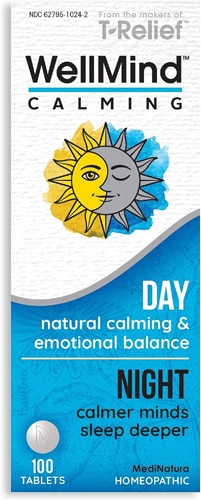There’s a fine line between being your own advocate and being your own worst enemy. When it comes to your health, it’s important to know your body’s quirks and listen carefully when things don’t feel right. That’s completely natural.
What’s not as common is spotting a new freckle on your arm and immediately researching skin cancer, or proclaiming you have a thyroid condition the moment you see too much hair in the shower drain. These are exaggerated reactions to otherwise normal body processes, and they’re characteristic of health anxiety, also known as illness anxiety disorder (IAD).
P.S. – If you’re concerned about that freckle, learn how to identify potentially dangerous spots on your skin.
What is health anxiety?
The Anxiety and Depression Association of America (ADAA) defines health anxiety as the “misinterpretation of normal bodily sensations as dangerous.” In other words, you tend to believe that you have a serious or life-threatening illness, even though you don’t show any symptoms of one. You may experience mild symptoms, but they never worsen or lead to a diagnosis. This makes you worry even more. All this worrying can actually produce real physical symptoms, including dizziness, stomachaches, rapid heartbeat, chest pain and more. As a result, you:
- Constantly worry that you have been undiagnosed.
- Seek more health information online, almost obsessively.
- Read news stories about a condition or disease and begin to worry that you’re afflicted with it.
- Worry to the point that it interferes with your daily activities.
- Are only temporarily relieved by a medical evaluation.
If this sounds like hypochondria, that’s because it is – or was, rather.
Health anxiety vs. hypochondria
Several years ago, physicians and psychiatrists proposed changing the relationship between health anxiety and hypochondriasis (often called hypochondria) in order to more effectively diagnose patients with a heightened sense of symptoms. Despite a small case-control study that found insufficient evidence to change the diagnostic criteria, the change was approved.
Subsequently, revisions in the Diagnostic and Statistical Manual of Mental Disorders (DSM-5) split hypochondriasis into two related disorders: somatic symptom disorder (SSD) and illness anxiety disorder (IAD).
The main difference between the two is that SSD is diagnosed when one or more chronic somatic symptoms exists. To break down SSD:
- You must have at least one persistent physical symptom that has been recognized by a medical professional.
- That physical symptom leads you to excessively worry.
Who is affected most by health anxiety?
If your physical symptoms are a result of your anxiety, you’re likely dealing with illness anxiety disorder. Health anxiety, or IAD, is a type of anxiety disorder. More specifically, health anxiety is a type of generalized anxiety disorder (GAD), which affects 6.8 million American adults or 3.1 percent of the population each year.
The ADAA also notes that women are twice as likely as men to experience generalized anxiety disorder. Worst of all, GAD often co-occurs with depression. If you have experienced depression or have a family history of depression, this may increase your risk of developing anxiety – or vice versa.
Coping with health anxiety
It’s perfectly fine to worry about your health, especially if you’ve been in a particularly dangerous situation. It’s when your health concerns are interfering with your everyday life, that you know it’s time to find your grounding.
Health anxiety can easily be treated with help from your healthcare provider. Talk to your doctor first and foremost. Most likely, they will refer you to a psychologist for one-on-one talk therapy. These sessions will focus on establishing coping strategies to better manage your anxiety. In some cases, your doctor may prescribe anti-anxiety medications.
Of course, you can also reduce stress and anxiety with certain lifestyle changes, including:
- Practicing meditation for anxiety
- Exercising regularly
- Limiting alcohol and caffeine
- Eating a healthy diet
- Getting adequate sleep every night (because there are so many benefits of a good night's sleep)
Remember that you cannot control everything. But what you can control is your attitude and how you respond to certain stressors. So try to maintain a positive attitude, eat well and move often. If can you do that, your health will surely be in good standing.




